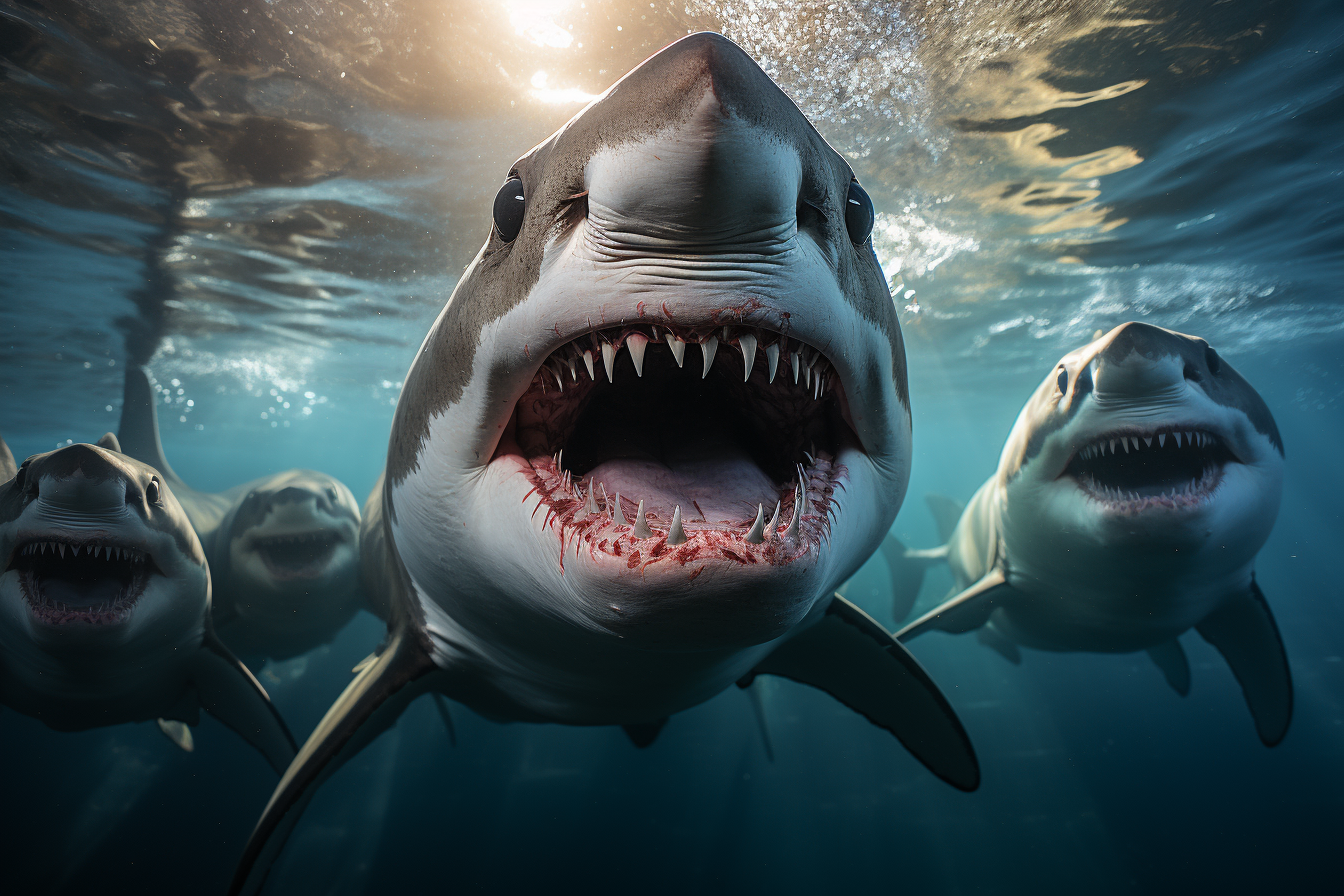Animals
Experts Say “Crazed Sharks” Might Be Consuming Cocaine Dropped Off Florida Coast

The phenomenon of “cocaine sharks” is taking the spotlight, potentially providing the narrative for the next sensational marine-based disaster film. Researchers are speculating that sharks, driven by hunger and frenzy, might be consuming packages of mind-altering substances discarded off the coast of Florida.
The concept of cocaine sharks, a key feature of Discovery’s forthcoming Shark Week, investigates whether these marine predators are feasting on pharmaceuticals jettisoned by passing drug traffickers. However, the marine scientists behind the TV program assert that its objective extends beyond mere sensationalism.
Dr. Tracy Fanara, a Florida-based environmental engineer and leading member of the research team, told The Guardian, “It’s a catchy headline to shed light on a real problem, that everything we use, everything we manufacture, everything we put into our bodies, ends up in our wastewater streams and natural water bodies, and these aquatic life we depend on to survive are then exposed to that.”
Studies have shown that fish are being affected by drugs such as pharmaceuticals, cocaine, methamphetamines, and ketamine. “If these cocaine bales are a point source of pollution, it’s very plausible [sharks] can be affected by this chemical. Cocaine is so soluble that any of those packages open just a little, the structural integrity is destroyed and the drug is in the water,” Fanara adds.
The show “Cocaine Sharks” is anticipated to be a major attraction of Shark Week, Discovery network’s annual popular showcase of the species ranging from great whites, hammerheads, and tiger sharks to the smallest varieties.
During their six-day research expedition in the Florida Keys, an ecologically sensitive island chain off the state’s southern tip, Fanara and British marine biologist Tom Hird observed sharks displaying unusual behaviors. A hammerhead, a species that would typically avoid humans, approached the divers directly, moving erratically. They also noticed a sandbar shark swimming in circles, fixated on an imaginary object.
The researchers conducted experiments, including dropping dummy bales in the water, which many of the sharks bit into, and loading balls of bait with highly concentrated fish powder to simulate cocaine. The effect, the researchers noted, was similar to the impact of catnip on cats.
The Florida Keys were chosen for the research due to the convergence of ocean currents making the region a hotspot for floating cocaine bales. Florida is a major transit point for large quantities of drugs entering the US from South America, and bundles of cocaine, wrapped in plastic, are often lost at sea or discarded by traffickers being chased by law enforcement.
Last month, the US Coast Guard announced the recovery of over $186m of illegal narcotics from the waters of the Caribbean and southern Florida. However, such seizures barely dent an industry operating at record levels.
Fanara reveals, “While we were in the Keys filming, cocaine bales were washing ashore, like twice in one week, so it’s really a prevalent issue.” However, the actual amount of cocaine ingested by the sharks is difficult to determine based on preliminary experiments.
Fanara plans to collaborate with other Florida marine scientists in the coming months to take blood samples from some of the sharks to measure cocaine levels. She hopes that viewers of “Cocaine Sharks” will understand the threat to marine life and the fragile ocean ecosystem from pollutants in the water.
“It’s like a game of Jenga where we’re at the top,” she says. “We’re in the sixth mass extinction and the more chemicals we introduce, the more radical changes we introduce, the more precarious it gets. These animals are leaving one by one and the integrity of the tower is depleting, even if we might not feel it right now. At some point, the tower’s going to fall.”
Shark Week programming begins at 8pm ET Sunday on Discovery. “Cocaine Sharks” is scheduled to air Wednesday, 26 July at 10pm ET.
Now, let’s delve deeper into the topic of marine pollution and its impact on marine life. The issue of marine pollution is a global concern that extends beyond the phenomenon of “cocaine sharks.” The world’s oceans are littered with a variety of pollutants, including plastics, heavy metals, and chemicals, which have a detrimental impact on marine ecosystems.
Plastic pollution is one of the most visible forms of marine pollution. Every year, millions of tons of plastic waste end up in the oceans, where they break down into microplastics. These tiny particles are ingested by marine animals, causing physical harm and introducing toxic chemicals into the food chain.
Heavy metals such as mercury, lead, and cadmium, often released from industrial processes, also pose a significant threat to marine life. These metals can accumulate in the tissues of marine animals, leading to various health problems and even death.
Chemical pollutants, including pesticides, pharmaceuticals, and the aforementioned illicit drugs, can have a range of harmful effects on marine life. These substances can disrupt the endocrine systems of marine animals, leading to reproductive issues, developmental problems, and other health concerns.
The issue of marine pollution is a complex one, requiring concerted global efforts to address. It involves not only cleaning up the existing pollution but also implementing measures to prevent further pollution. This includes improving waste management practices, reducing the use of single-use plastics, and enforcing stricter regulations on industrial emissions.
In conclusion, the story of the “cocaine sharks” serves as a stark reminder of the broader issue of marine pollution. It underscores the urgent need for action to protect our oceans and the diverse life they support. As we continue to learn more about the impacts of various pollutants on marine life, it becomes increasingly clear that our actions on land have far-reaching consequences for the health of our oceans.
Typos, corrections and/or news tips? Email us at Contact@TheMindUnleashed.com
